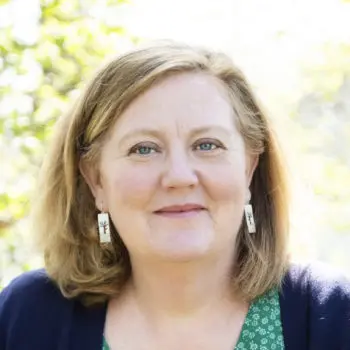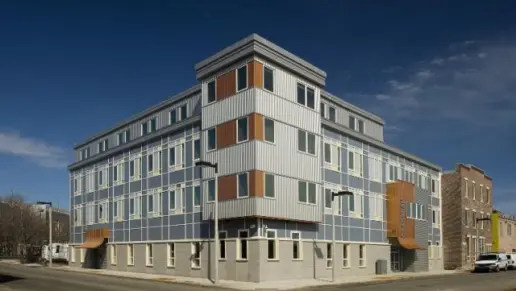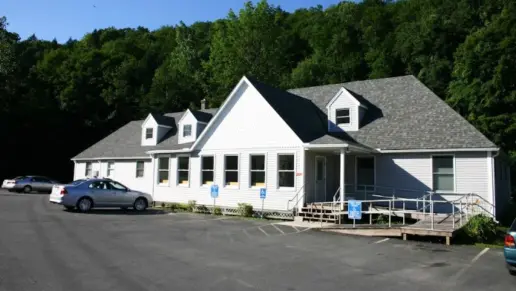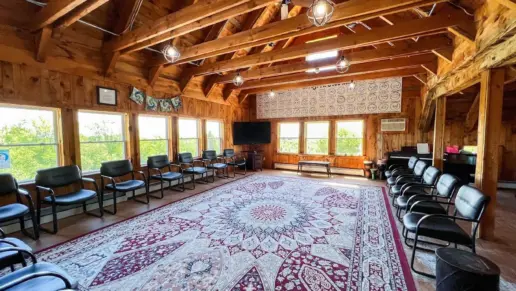This place gave me the tools I needed to save my life. It is full of amazing people who care about their clients since day one.
About Victory Programs – New Victories
Home to the oldest city park in the nation, Boston, Massachusetts, also features Victory Programs – New Victories. Established in 1975, this organization provides care for adults battling addiction as well as other life challenges like mental health disorders, homelessness and HIV/AIDS. This location is a men’s residential program with comprehensive services to help you sustain recovery.
Residential programs offer a safe, sober living environment. This program lasts from 90 days up to eight months, depending on your unique needs. You’ll live among men from all walks of life and participate in proven therapeutic interventions. Group and individual counseling, case management and peer support are available.
A Whole Person Healing Approach
For me, their holistic approaches really stood out. They understand the significance of whole person healing to sustain recovery. You can participate in art therapy, meditation and recreational activities to aid in your journey. You’ll benefit from new self expression outlets to heal your mind, body and soul.
Connecting You to Comprehensive HIV Care
Another standout feature I noticed was their specialized care for people battling HIV/AIDS. You can access medical case management to find the best resources for your situation. You’ll benefit from ongoing support and treatment referrals. They ensure you have the tools to improve your overall health and sustain recovery.
Harm Reduction Options
I also think their Victory Connector program is fantastic. This harm reduction program serves people experiencing homelessness in the Massachusetts Avenue and Melnea Cass Blvd. neighborhood. They provide various harm reduction services including overdose education, Naloxone distribution, HIV and STD services and syringe services.
Rehab Score
Accepted Insurance
Other Forms of Payment
Self-pay involves paying for treatment out of your own pocket. You can use savings or credit, get a personal loan, or receive help from family and friends to fund your treatment. If you don't have insurance or your insurance plan doesn't cover a specific program, self-pay can help ensure you still get the care you need.
Military members, veterans, and eligible dependents have access to specific insurance programs that help them get the care they need. TRICARE and VA insurance can help you access low cost or no cost addiction and mental health treatment. Programs that accept military insurance often have targeted treatment focused on the unique challenges military members, veterans, and their families face.
Addiction Treatments
Levels of Care
Treatments
The goal of treatment for alcoholism is abstinence. Those with poor social support, poor motivation, or psychiatric disorders tend to relapse within a few years of treatment. For these people, success is measured by longer periods of abstinence, reduced use of alcohol, better health, and improved social functioning. Recovery and Maintenance are usually based on 12 step programs and AA meetings.
Addiction is a highly complex problem, and drug rehab in Massachusetts is often necessary to address it. These programs treat physical, mental, and relational issues that are involved. Treatment empowers individuals to manage these issues without the use of drugs.
A combined mental health and substance abuse rehab has the staff and resources available to handle individuals with both mental health and substance abuse issues. It can be challenging to determine where a specific symptom stems from (a mental health issue or an issue related to substance abuse), so mental health and substance abuse professionals are helpful in detangling symptoms and keeping treatment on track.
Opioid rehabs specialize in supporting those recovering from opioid addiction. They treat those suffering from addiction to illegal opioids like heroin, as well as prescription drugs like oxycodone. These centers typically combine both physical as well as mental and emotional support to help stop addiction. Physical support often includes medical detox and subsequent medical support (including medication), and mental support includes in-depth therapy to address the underlying causes of addiction.
Programs


Clinical Services
Research clearly demonstrates that recovery is far more successful and sustainable when loved ones like family members participate in rehab and substance abuse treatment. Genetic factors may be at play when it comes to drug and alcohol addiction, as well as mental health issues. Family dynamics often play a critical role in addiction triggers, and if properly educated, family members can be a strong source of support when it comes to rehabilitation.
Group therapy is any therapeutic work that happens in a group (not one-on-one). There are a number of different group therapy modalities, including support groups, experiential therapy, psycho-education, and more. Group therapy involves treatment as well as processing interaction between group members.
In individual therapy, a patient meets one-on-one with a trained psychologist or counselor. Therapy is a pivotal part of effective substance abuse treatment, as it often covers root causes of addiction, including challenges faced by the patient in their social, family, and work/school life.
Amenities
-
Residential Setting
-
Private Setting
Staff

Executive Director

CFO

Chief of Programs

COO

Chief Development Officer

Director of Residential Recovery Services

Deputy Director of Development

Director of Prevention
Contact Information
9 Virginia Street
Boston, MA 02125





